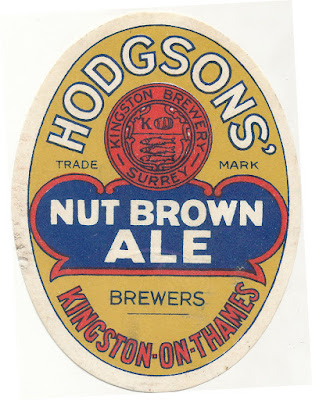Visit the Shut up about Barclay Perkins site

Bottling machinery is some of the most expensive kit in a brewery. And because by its very nature, it’s full of moving parts, it’s also the equipment that breaks down the most often. An unreliable bottling machine can be a real nightmare for a brewery.
Jeffery warns of the danger of over-mechanisation of the bottling process.
“Bottling Machinery
Before entering into the question of systems, we want to draw attention to bottling machinery, and weigh up its merits and demerits. In every trade there is a tendency to replace manual labour by machinery on the score of economy. Whether this is always wise or not, mechanization has come to stay and so long as a machine can be relied upon to do the work regularly and without stoppage on account of breakdown the idea is good. In our opinion, there is a danger in making machinery too complicated and comprehensive. We have even seen machinery where dirty bottles are put in at one end, washed, filled with beer, stoppered, labelled, and discharged ready for sale at the other end. The machine was extremely ingenious, and excellent so long as it worked satisfactorily. But what chaos it would cause and what loss in the event of a serious breakdown. No brewery owning such a machine would have enough trained hands available to be able to revert to manual labour while repairs were taking place.
With mechanization in separate units, however, it is an easy matter for one unit temporarily to be replaced by manual labour.”
"Brewing Theory and Practice" by E. J. Jeffery, 1956, page 346.
I doubt any decent-sized brewery would contemplate going back to manual bottling if a machine were broken. They bottle on such a large scale that any attempt to partially bottle by hand would be laughable. Unless you have more than one machine, I can’t see what you could do in the event of a breakdown, other than wait for it to be repaired.
Jeffery recommended having different machines for different operations:
“Frankly, we are not in favour of very large and intricate machines. We consider it far preferable to have separate units for bottle washing, filling and labelling. The governing ideas of each unit should be restriction in size so far as is compatible with efficiency, accessibility (especially internally), solidity in construction, and absence of small working parts which are liable to wear and break with undue frequency. Each unit must be economical to run, especially with regard to motive power. With a system so controlled and designed, it is far easier to carry on if one unit is out of action for a time.”
"Brewing Theory and Practice" by E. J. Jeffery, 1956, pages 346 - 347.

I’m pretty sure that modern machines all combine filling and labelling. Just checked Briggs, and I’m talking out of my arse. A modern bottling line has several machines.
“The bottling line consists of a series of machines and processes:
· depalletizer
· decrater
· washer
· empty bottle inspection
· flash pasteurization or sterile filtration
· filler
· crowner
· tunnel pasteurization
· full bottle inspection
· labeller
· crater
· palletizer
· cleaning”
"Brewing Science and Practice" by Dennis E. Briggs, Chris A. Boulton, Peter A. Brookes and Roger Stevens, 2000, pages 761 - 762.
“In choosing and deciding upon any piece of bottling machinery, the factor which has always to be borne in mind is the probable future cost of repairs and renewals which will be occasioned by wear and tear. Some machines may be cheaper than others in first cost, and do identical work, but it will invariably be found that the working parts therein are on a much smaller scale. In adopting such machines, a risk is run of inconvenience and loss occasioned by breakages and stoppages. Cheap machines are never cheap in the long run. ”
"Brewing Theory and Practice" by E. J. Jeffery, 1956, page 347.
At the start of the 1950’s brewers were often happy to get hold of any equipment. With exports having priority, they might have to wait years to get their hands on a new bottling machine. As did Offiler.
Bottles next.
More...






 Reply With Quote
Reply With Quote